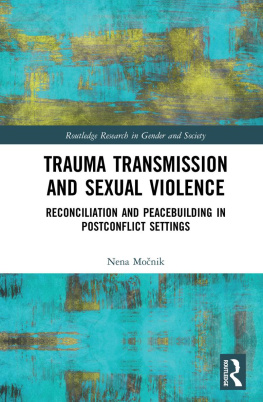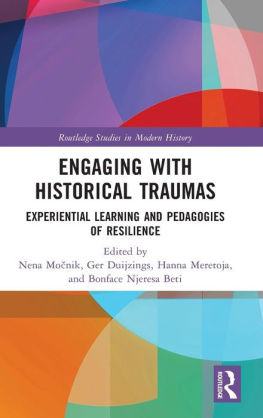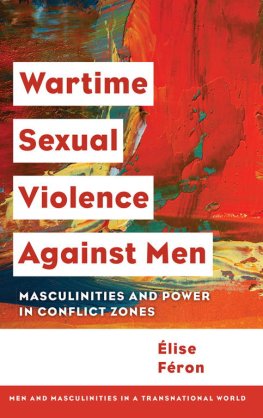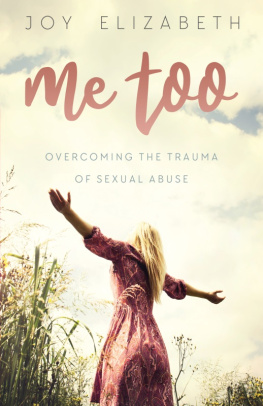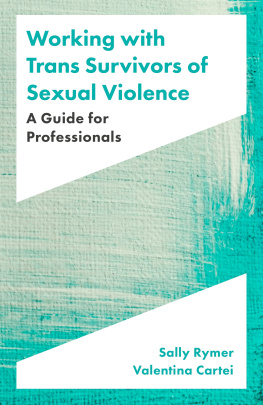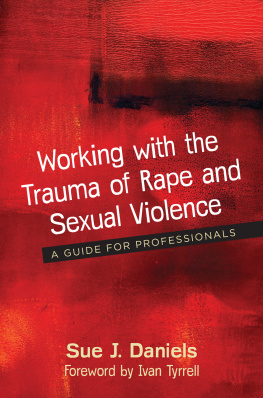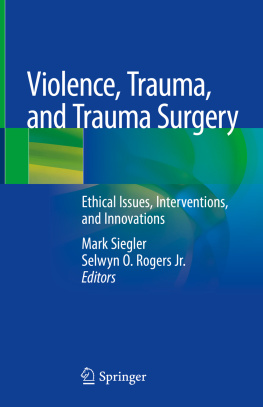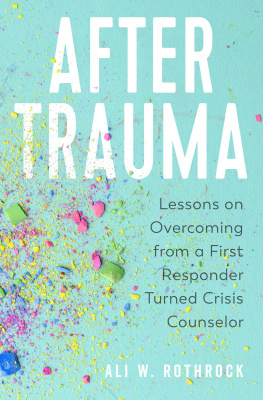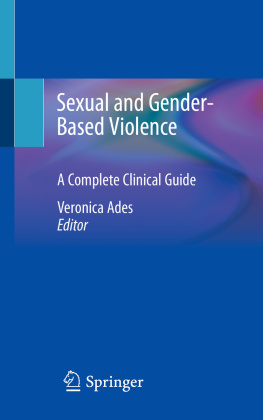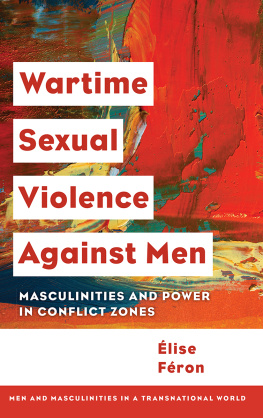Trauma Transmission and Sexual Violence
This book grapples with the potential impacts of collective trauma in war-rape survivors families. Drawing on interethnic and intergenerational participatory action research on reconciliation processes in postconflict Bosnia-Herzegovina, the author examines the risk that female survivors of war-related sexual crimes, now mothers, will breed hatred and further division in the postconflict context. Showing how the historical trauma of sexual abuse among survivors affects the ideas, perceptions, behavioral patterns, and understandings of the ethnic and religious Other or perpetrator, the book also considers the influence of such trauma on other attitudes rarely addressed in peacebuilding programs, such as notions of naturalized gender-based violence, cultural scripts of sexuality, and support for dangerous or violent aspects of the patriarchal social order. It thus seeks to sketch proposals for a curriculum of peacebuilding that takes account of the legacy of war rape in survivors families and the impact of trauma transmission. As such, Trauma Transmission and Sexual Violence will appeal to scholars of politics, sociology, and gender studies with interests in peace and reconciliation processes and war-related sexual violence.
Nena Monik is a researcher at the CY Cergy-Paris Universit, France, and the author of Sexuality after War Rape: From Narrative to Embodied Research.
Routledge Research in Gender and Society
83 Reframing Drag
Beyond Subversion and the Status Quo
Kayte Stokoe
84 Rape in the Nordic Countries
Continuity and Change
Edited by Marie Bruvik Heinskou, May-Len Skilbrei and Kari Stefansen
85 Refracting through Technologies
Bodies, Medical Technologies and Norms
Ericka Johnson
86 Young, Disabled and LGBT+
Voices, Identities and Intersections
Edited by Alex Toft and Anita Franklin
87 Transdisciplinary Feminist Research
Innovations in Theory, Method and Practice
Edited by Carol A. Taylor, Christina Hughes, and Jasmine B. Ulmer
88 Identity, Belonging, and Community in Mens Roller Derby
Dawn Fletcher
89 The Gender-Sensitive University
A Contradiction in Terms?
Edited by Eileen Drew and Siobhan Canavan
90 Trauma Transmission and Sexual Violence
Reconciliation and Peacebuilding in Postconflict Settings
Nena Monik
For more information about this series, please visit: https://www.routledge.com/sociology/series/SE0271
Trauma Transmission and Sexual Violence
Reconciliation and Peacebuilding in Postconflict Settings
Nena Monik
First published 2021
by Routledge
2 Park Square, Milton Park, Abingdon, Oxon OX14 4RN
and by Routledge
52 Vanderbilt Avenue, New York, NY 10017
Routledge is an imprint of the Taylor & Francis Group, an informa business
2021 Nena Monik
The right of Nena Monik to be identified as author of this work has been asserted by her in accordance with sections 77 and 78 of the Copyright, Designs and Patents Act 1988.
All rights reserved. No part of this book may be reprinted or reproduced or utilised in any form or by any electronic, mechanical, or other means, now known or hereafter invented, including photocopying and recording, or in any information storage or retrieval system, without permission in writing from the publishers.
Trademark notice : Product or corporate names may be trademarks or registered trademarks, and are used only for identification and explanation without intent to infringe.
British Library Cataloguing-in-Publication Data
A catalogue record for this book is available from the British Library
Library of Congress Cataloging-in-Publication Data
A catalog record has been requested for this book
ISBN: 978-0-367-22214-7 (hbk)
ISBN: 978-0-429-27379-7 (ebk)
Typeset in Times New Roman
by Deanta Global Publishing Services, Chennai, India
Contents
This research is based on ethnographic work in Bosnia-Herzegovina, conducted between 2011 and 2019. It combines data collected from the group interactive workshops, individual conversations, semistructured interviews, spontaneous gatherings, participation with observation, and my own pedagogical practices in prevention of (sexualized) violence.
Throughout the book I refer to mothersurvivors simply as survivor if not otherwise stated. In order to minimize the narrative fetishism and to protect people that participated in the research, I provide initials of the first name, sometimes age, and the geographical region. Should the reader require more data or information on ethnographic content, she can contact the author directly.
For the scope of this book, I refer to heteronormative families that consist of a biological mother, father, and children. I do not ignore or deny other forms of families and family relations, nor diverse sexualities and gender spectrum. As my ethnographic work did not include any form other than the one mentioned, I wanted to avoid generalizing or drawing conclusions without any concrete research evidence. However, I hope that this book, despite its limitations, can be a departure point to conduct more research on trauma transmission with all forms and shapes of families in diverse sociopolitical contexts.
The beginnings of this book go back to 2015, to a village in central Bosnia-Herzegovina when I was leaving the country after finalizing my previous research. I was visiting women with whom I had worked for half a year to thank them for a fruitful collaboration and the mutual trust, exchanges, and conversations. I traveled with one of them, whom I will call Alma, to a village where another woman that I had worked with, here called Senka, lived with her husband and two daughters. When we arrived, she had just come from the hen house after finishing her morning routine and was changing from her plastic boots to comfortable slippers in front of the house. She warmly invited us to enter, and as is very common in the region, we gathered on a couch, sipping coffee and snacking on wafers. Her husband brought an orangeade from the cellar and then, after briefly shaking our hands, left the house. It was late morning, and the two daughters, aged 13 and 9, were in school. Glancing at the framed pictures of the two girls, Alma expressed how lucky Senka was to have two daughters, while she although still thankful for her children had two boys. They get to help you with your chores, and you have nothing to worry about when you get old as the girls will take care of you, said Alma. I have worries, more every year, responded Senka. Every time they are about to return after dawn, I fear they will get attacked. You know how men are here and what they want. This conversation continued back and forth between them, but they never directly addressed their own experiences with men. Yet the shadows of their memories were somehow present in the room.
Signaling that she wanted to get away from the topic, Alma lit another cigarette and, while exhaling, turned to Senka. I dont know what kind of mother raises her son to go against the woman. You know that I am not raising my boys to hurt, let alone kill, your girls. After a short pause, she added, Or any girl, ever. It was hard for me to understand if her expression was anger, guilt, blame, or frustration. But it seemed important that she gave her word to Senka to be a mother who would never raise a murderer. Or a rapist.


